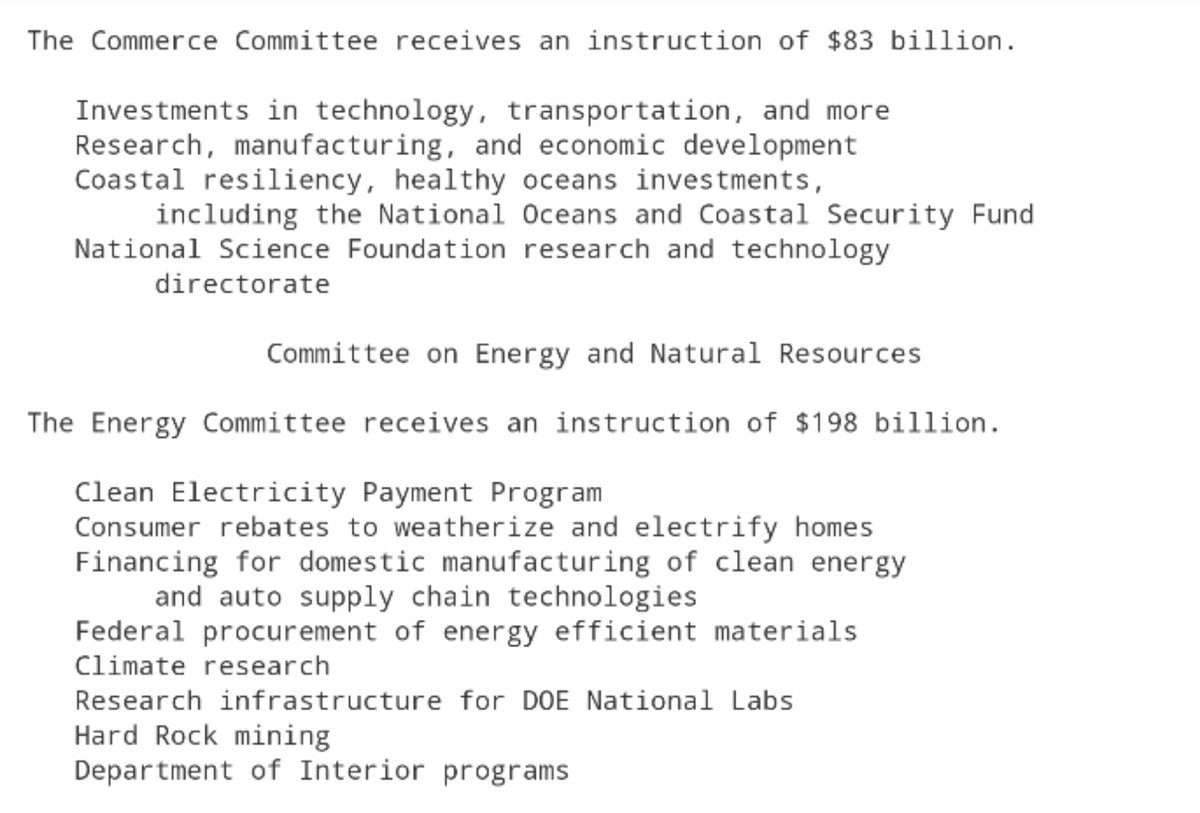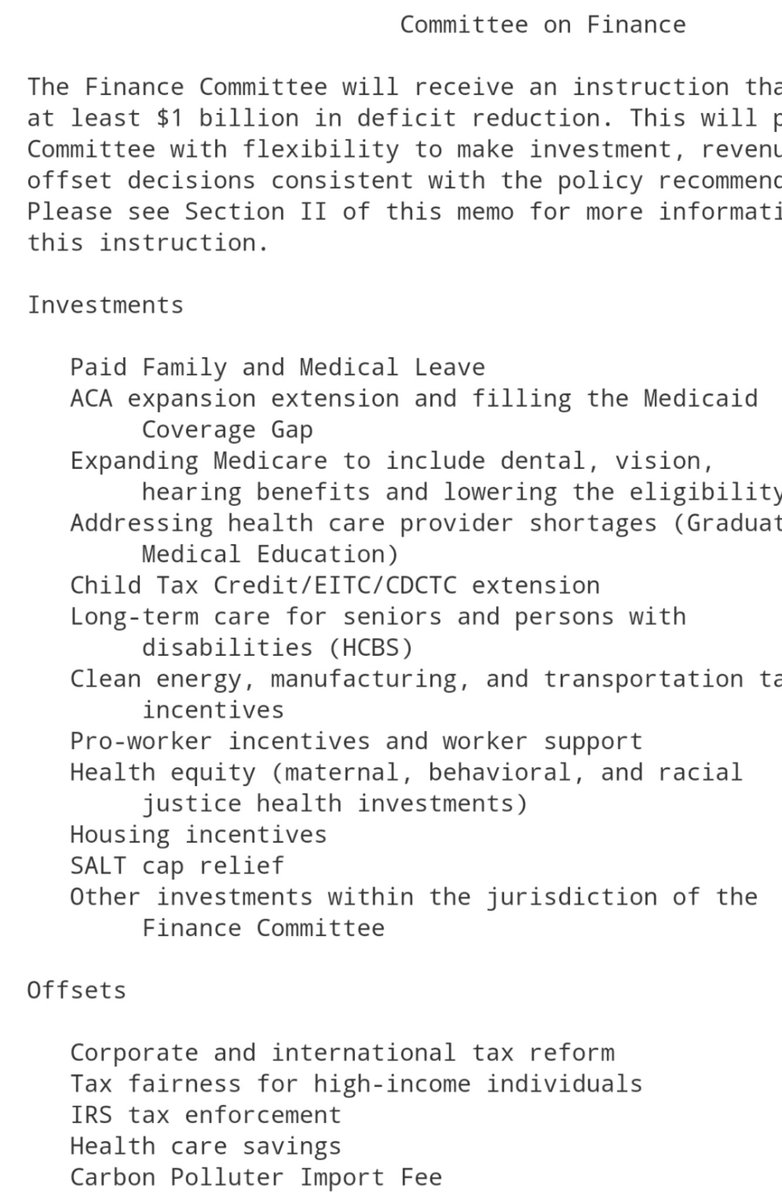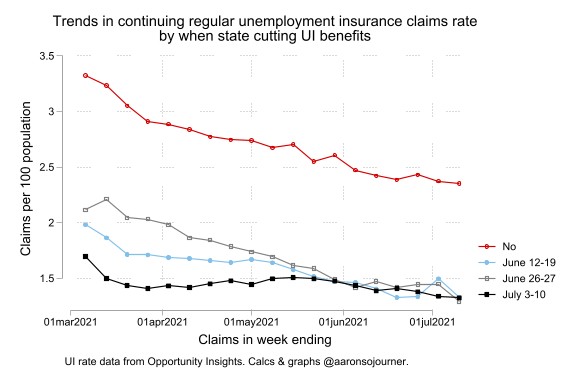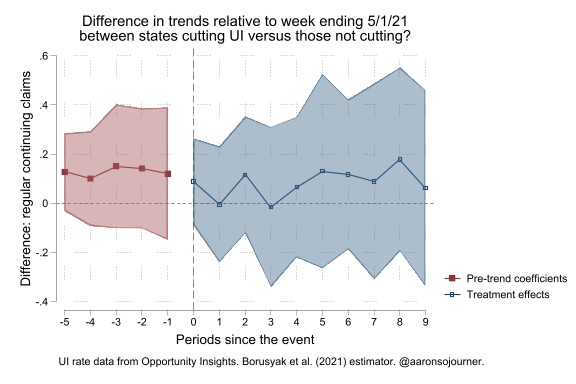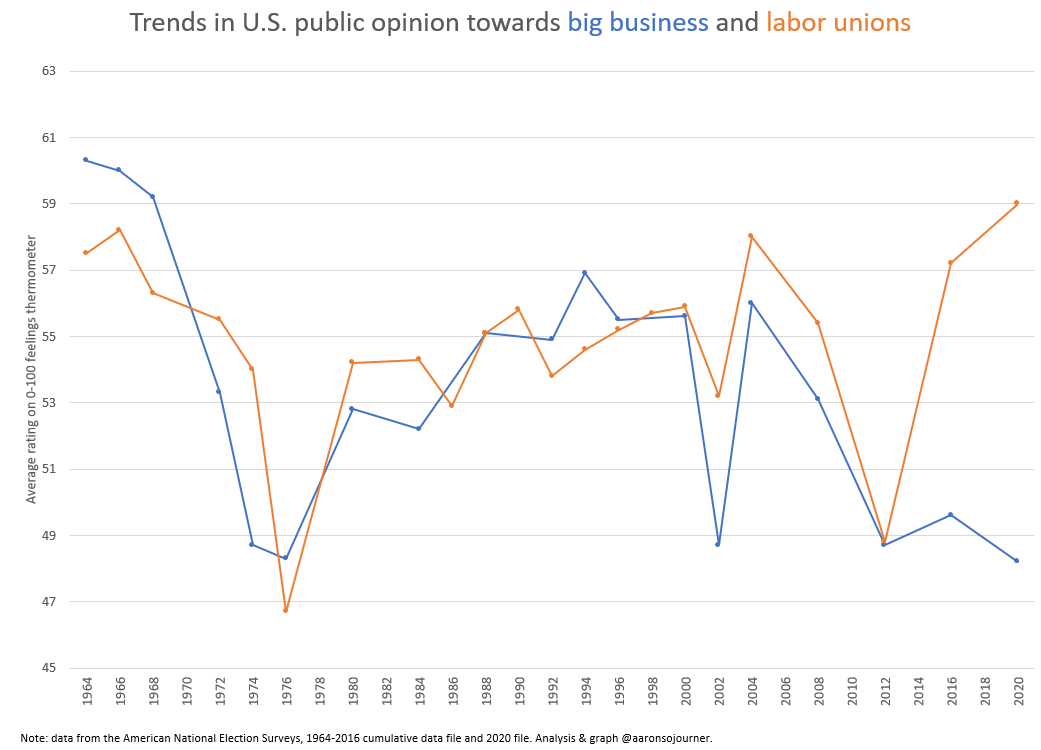
Reporters often ask if service workers' recent compensation improvements will stick in the long-run.
To answer yes, one really needs a theory that something changed long-run.
To answer yes, one really needs a theory that something changed long-run.
I have the sense their compensation improvements are driven by short-term imbalances in adjustment speeds between supply & demand, not long-term changes in productivity or balance of power. So I'd bet no.
However, one big change does seem permanent: many organizations & workers invested in maximizing their ability to operate with geographically distributed teams. That capacity now exists & isn't going away.
This increases the geographic scope of matching workers & employers.
It won't obviously change the balance of power. Options increased on both sides of market.
However, it should facilitate improved matching &⬆️ productivity, which can⬆️compensation, profit, & consumer surplus
It won't obviously change the balance of power. Options increased on both sides of market.
However, it should facilitate improved matching &⬆️ productivity, which can⬆️compensation, profit, & consumer surplus
Aside from that, some potential changes would shift power towards workers:
- ⬆️labor demand from public spending (infrastructure, care, climate corps...),
- shift in monetary policy towards Fed's full employment mandate, &
- #PROAct protections for workers' right to organize
- ⬆️labor demand from public spending (infrastructure, care, climate corps...),
- shift in monetary policy towards Fed's full employment mandate, &
- #PROAct protections for workers' right to organize
• • •
Missing some Tweet in this thread? You can try to
force a refresh



